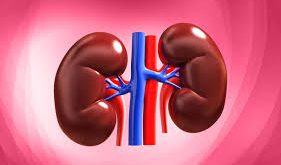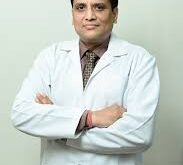Modern life constantly exposes us to invisible health risks. From polluted city air to the fumes of everyday household activities, our lungs are challenged more than ever before. Doctors are now noticing patterns that link these subtle exposures to serious health concerns, even in people who believe they are leading a safe, smoke-free life.
Most of the time Non-smokers dismiss early signs like persistent cough, shortness of breath, or chest discomfort because they do not consider themselves at risk. Unfortunately, this often leads to delayed diagnosis. Hence being proactive and responsible for your health is crucial.
Not all diseases follow the patterns we once assumed. Conditions once strongly associated with habits like smoking are now being diagnosed in people who have never touched a cigarette. This shift has opened new conversations in medicine about hidden environmental exposures and genetic factors that quietly affect our lungs.
Lung cancer is often linked to cigarette smoking, yet an increasing number of cases are now seen in people who have never smoked a single cigarette. In medical practice, this trend is no longer surprising. Over the years, patients without any history of smoking have been diagnosed with lung cancer, prompting doctors to look closely at other risk factors that are driving this rise.
Environmental Exposure Plays A Major Role
Prolonged contact with second-hand smoke, indoor air pollution from cooking fuels, and exposure to radon gas can significantly increase the risk. In cities, high levels of air pollution and fine particulate matter have become silent contributors to lung disease. Occupational hazards, such as long-term exposure to asbestos or certain industrial chemicals, also play a part.
Genetic Factors Cannot Be Ignored
A family history of lung cancer or the presence of specific gene mutations makes some individuals more vulnerable despite leading a smoke-free life. In clinical settings, it is often noticed that women are more likely to develop lung cancer without a smoking history, suggesting a hormonal or genetic link that is still under study.
Early Detection Remains A Challenge
Non-smokers may dismiss early signs like persistent cough, shortness of breath, or chest discomfort because they do not consider themselves at risk. However, being proactive and responsible for your health is crucial. Unfortunately, this often leads to delayed diagnosis when the disease is advanced. Screening with low-dose CT scans in high-risk individuals and timely evaluation of unexplained respiratory symptoms are crucial to improving outcomes.
A chest X-ray may be the first step, but a CT scan provides a clearer picture of any suspicious growths in the lungs. Screening with low-dose CT scans in high-risk individuals and timely evaluation of unexplained respiratory symptoms are crucial steps in improving outcomes.
If an abnormality is found, further tests such as bronchoscopy, tissue biopsy and molecular testing help confirm the diagnosis and determine the exact type of lung cancer. Identifying specific genetic mutations also guides doctors in planning targeted therapy, which has improved outcomes in recent years.
Treatment
Treatment for lung cancer in non-smokers has seen encouraging progress. This progress should give us all hope and optimism. Targeted therapies and immunotherapies have transformed oncologists’ management of the disease, particularly in cases with identifiable genetic mutations. Surgical options, radiation therapy, and chemotherapy continue to play an important role, often used in combination for the best results.
Rising cases of lung cancer in non-smokers are a reminder that vigilance is essential for everyone, not just for those with a history of smoking. Understanding environmental risks is key to feeling informed and empowered. Seeking medical advice for persistent respiratory symptoms and adopting preventive measures against indoor and outdoor pollution can significantly reduce the threat.
For doctors, it reinforces the importance of early evaluation and personalized treatment to improve patient survival and quality of life.
(Dr. Debanti Banerjee (Associate Consultant), Medical Oncology)
 Newspatrolling.com News cum Content Syndication Portal Online
Newspatrolling.com News cum Content Syndication Portal Online







